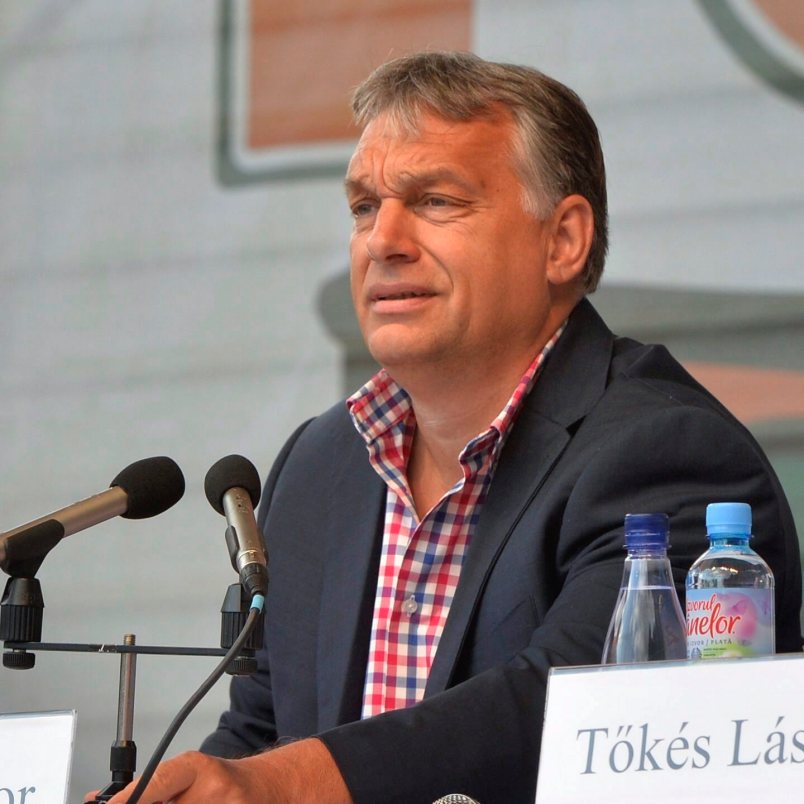BUDAPEST, Hungary (AP) — The anti-terrorism proposals of U.S. Republican presidential candidate Donald Trump make him the better option for Europe and Hungary, Hungarian Prime Minister Viktor Orban said Saturday.
Orban, who has built border fences to stop migrants, said in Romania that the ideas of the “upstanding American presidential candidate” about the need for the best intelligence services and his opposition to “democracy export” were also applicable in Europe.
“I am not Donald Trump’s campaigner,” Orban said at a cultural event in Baile Tusnad, Romania, an area with a large Hungarian population. “I never thought that the idea would ever occur to me that he is the better of the open options for Europe and Hungary.
“I listened to (Trump) and I have to tell you that he made three proposals to stop terrorism. And as a European I myself could not have drawn up better what Europe needs.”
Orban, who returned to power in 2010, has been criticized often by the European Union, the United States and others for his policies meant centralize power, control civic groups and increase influence over state and private media.
Hillary Clinton visited Hungary in 2011 as secretary of state, and expressed U.S. concerns over the independence of the courts, the press and government corruption.
Orban, whose speech was broadcast live on Hungarian state media, blamed the West for intervening unsuccessfully in countries like Egypt and Libya. While Hungary was not “indifferent” to the state of political and human rights in Turkey, he said its stability was most important.
“If I’m asked what is Hungary’s strongest expectation regarding Turkey today, we will put stability first,” Orban said. “If Turkey becomes unstable, many tens of millions of people from that region will hurtle toward Europe without any sort of filtering, screening or control.”
Orban was again very critical of the European Union’s leadership in Brussels.
“Europe’s current political leadership has failed,” Orban said, adding that the EU was “fooling itself” if it still viewed itself as a “global actor,” because that era had ended with the vote by Britain to leave the bloc.
The EU’s lack of influence even as a regional actor was clear in the crises in Ukraine and Syria, where the United States and Russia played leading roles, he said.
Orban again said that individual countries in Europe should have more authority to make their own decisions on specific issues, like migration.
“We have to make it clear that our problem is not in Mecca but in Brussels,” Orban said. “The bureaucrats in Brussels are an obstacle for us, not Islam. We could manage Islam if only (Brussels) would let us manage it in the way we think is worth it.”
Hungary shut its borders with Serbia and Croatia last year, greatly stemming the flow of migrants coming north from Turkey through Greece and trying to reach western Europe.
Copyright 2016 The Associated Press. All rights reserved. This material may not be published, broadcast, rewritten or redistributed.







Who’s going to come out in support of Trump next, General Zod?
Let’s see if he feels that way when Putin gets closer and closer to his neck of the woods.
Eastern European Neofascist Authoritarians for Trump! They have something in common:
Have an Austrian acquaintance who throughly disdained Hungary, particularly about refugees and also its leader.
Maria-Theresa, where are you when we need you???!
I, for one, welcome our new insect overlords!
https://www.youtube.com/watch?v=8lcUHQYhPTE